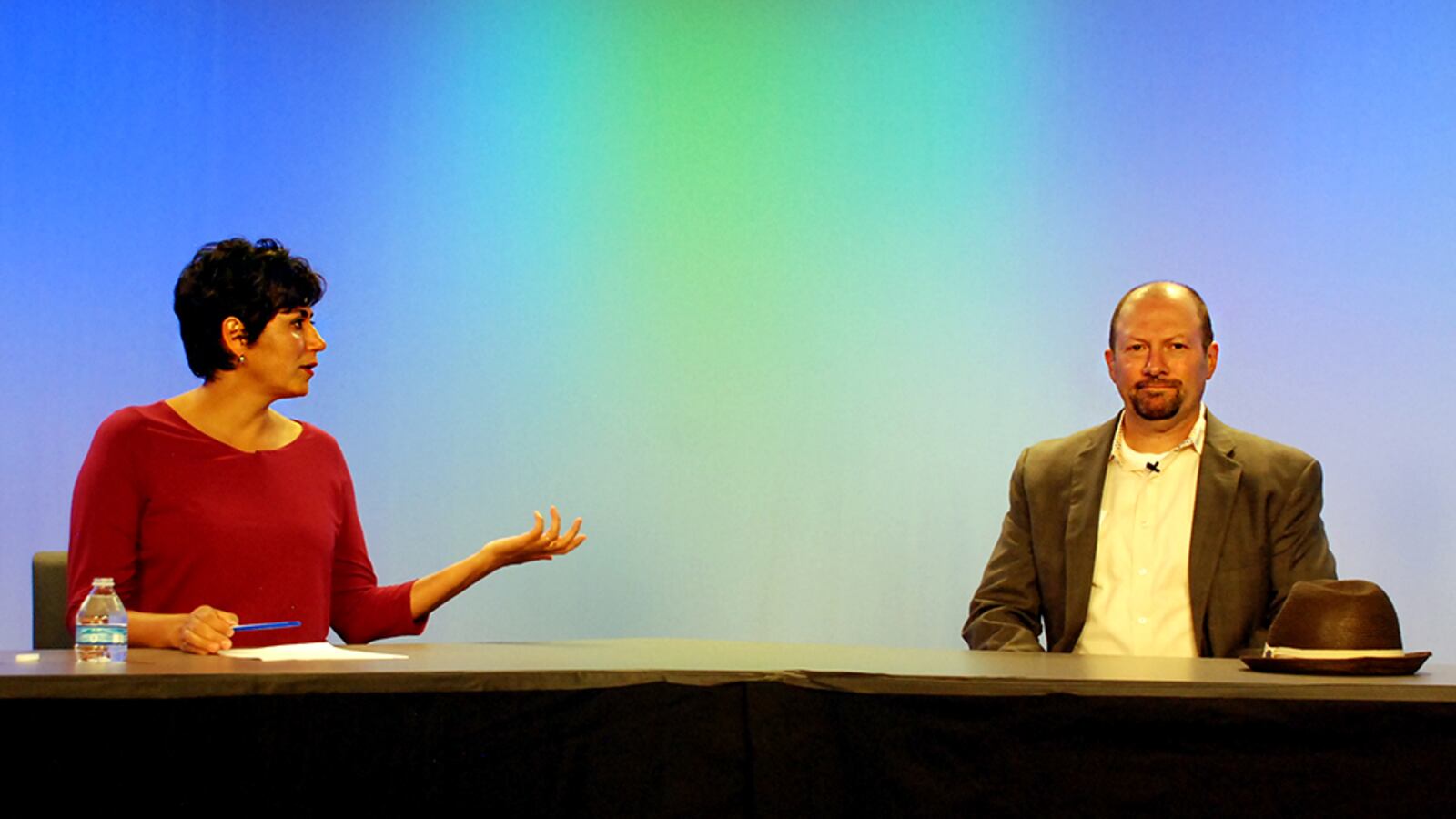Lisa Flores and Michael Kiley, candidates in the hotly contested school board race to represent Denver’s gentrifying northwest corner, grappled in a debate Monday evening over how to improve and better integrate schools, and how to retain the district’s best teachers.
Flores and Kiley, who represent stark philosophical differences, are battling it out for the school board’s only open seat this fall. Arturo Jimenez, who currently holds the seat, is term limited.
Those differences were highlighted Monday on nearly every issue.
“When I hear our neighborhood schools are failing, my experience tells me it’s the district [that] has failed our neighborhood schools,” Kiley said.
Flores countered later that the squabble over supporting district-run or charter schools is a red herring.
“We should be focused less on governing models and more focused on which schools are providing a great quality education,” Flores said.
Monday’s debate was the second of three school board debates co-sponsored by A+ Denver, Denver Decides and Chalkbeat Colorado. The debate was moderated by Chalkbeat Colorado Bureau Chief Eric Gorski and was recorded by Denver Public Schools’ Channel 22.
Flores is generally supportive of DPS’s strategies, including phasing-out low performing schools and replacing them with new programs and schools, which often has translated to charter schools with greater flexibility from district bureaucracy.
Meanwhile, Kiley has branded himself as a champion for the traditional neighborhood school providing students with a liberal arts education, physical education and arts programs.
While the outcome of the race in northwest Denver will do little to shift the school board’s current trajectory, a win by Kiley would signal at least one pocket of discontent with Superintendent Tom Boasberg’s administration and keep at least one reliable critic on the board.
The 2013 election produced a school board that regularly supports Boasberg’s agenda. And that’s become a central campaign issue for the current northwest race. Kiley and his supporters have charged that if Flores wins, the district will go unchecked by its governing board.
“The political dynamic is pretty clear,” Kiley said at the debate. “I struggle to think where [Flores] disagreed with the board majority.”
Flores said she is her own woman.
“I’m not running for or against the DPS administration,” she said. “I’m running for the kids. Every single vote and decision I make is going to be centered on how do we make better academic outcomes for our children.”
Flores said one of her main objectives is to improve the district’s pipeline of principals.
“That’s a key ingredient that we often overlook,” she said.
She said hiring and retaining better principals will lead to better school cultures and fewer teachers leaving the district.
But one of the only ways DPS can solve its high teacher and principal turnover rate is by providing schools with more resources and less bureaucracy, Kiley said.
“What they tell me they need is freedom to serve their families better,” he said.
Earlier this year, the school board did direct DPS officials to begin allowing school principals to apply for waivers from some district policies, including curriculum.
Another hot campaign issue that has emerged in northwest Denver and across the city is how the district has redrawn some school attendance boundaries.
The district believes by eliminating traditional neighborhood boundaries and creating wider “enrollment zones” that encompass more neighborhoods and campuses, schools will become more integrated. And that, the thinking goes, could lead to closing the achievement gap as was seen in more integrated schools in the late 1970s and 1980s.
Kiley, echoing some vocal northwest parents, disagrees.
“Trying to solve the broader social challenges by using a lottery and forcing a parent with resources into a school they don’t like won’t work,” Kiley said. “It didn’t work in the ’70s with busing and won’t work with enrollment zones now.”
For 20 years, DPS was court-ordered to integrate its schools through a program that bused more affluent students across neighborhood lines into poorer schools and vice versa. In response, thousands of affluent white families fled the district for nearby suburban school districts or private schools.
Flores, who appeared to grow flustered at times with Kiley’s rhetoric, said she had no patience for “scare tactics” and pointed out that most Denver families are able to attend their first school of choice.
“I am someone who supports parent choice,” she said. “I don’t think anyone should be forced into a school,” she said. “… The overwhelming majority who have participated in that program have received their first choice.”
But Flores fell short of outright endorsing enrollment zones as a working policy that should applied across the district.
“There is no one answer that fits every community,” she said.
Flores most recently was a grant manager at the Gates Family Foundation. She also has dozens of years of experience in both the public and nonprofit sector.
Flores has also served on the boards of the Children’s Museum, Denver’s Welfare Reform Board and Denver Housing Authority.
Kiley works for Kronos, a software company, as a project manager. He previously unsuccessfully ran for an at-large seat on the Denver school board in 2013.
Kiley played a leadership on the Northwest Community Committee, a task force created in 2011 to make recommendations to DPS on how to improve its schools. He also served as president of the Edison Elementary PTA.

